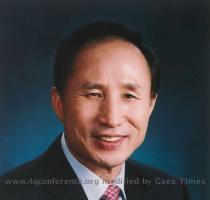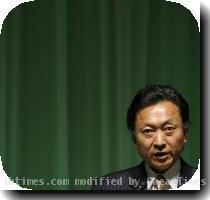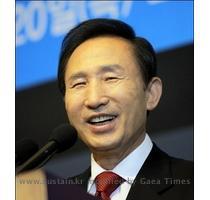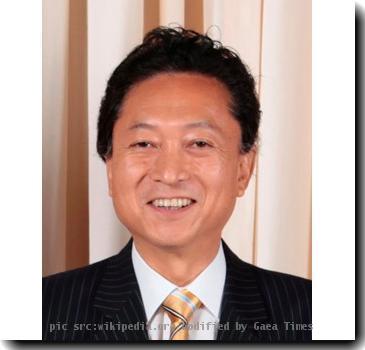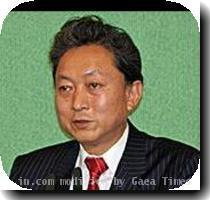Chinese premier says tension over Korea ship sinking must be defused, avoids backing UN action
By Young-joon Ahn, APSunday, May 30, 2010
China premier: Korean tensions must be defused
SEOGWIPO, South Korea — China held back from joining the chorus of nations condemning North Korea over the sinking of a South Korean warship, making quick international sanctions unlikely but perhaps buying time while China quietly leans on its unpredictable, nuclear-armed neighbor.
As Chinese Premier Wen Jiabao met with his South Korean and Japanese counterparts Sunday, tens of thousands of North Koreans rallied in their capital, clapping their hands, pumping their fists and and shouting slogans against South Korea and America, according to video footage from APTN in Pyongyang.
South Korea has taken punitive measures against the North since a team of international investigators said this month that a torpedo fired by a North Korean submarine tore apart and sank the warship Cheonan on March 26, killing 46 sailors. North Korea vehemently denies attacking the ship and has warned that the South is risking war by attempting to punish it.
Beijing didn’t appear ready to support possible action in the U.N. Security Council against North Korea, its longtime ally. But Wen’s closing remarks at Sunday’s meeting seemed to signal that it was becoming more engaged in the crisis.
“The urgent task for the moment is to properly handle the serious impact caused by the Cheonan incident, gradually defuse tensions over it and avoid possible conflicts,” Wen said.
Beijing has long tried to mediate disputes between the Koreas, and it often likes to maintain an appearance of neutrality. The Cheonan sinking poses an awkward challenge for China, which is under pressure to go along with sanctions but wants to maintain its friendship with North Korea, an unpredictable buffer state whose collapse could cause instability on a long Chinese border.
China unwillingness to criticize Pyongyang now might mean it’s trying to use quiet negotiations to convince North Korea to come clean on the ship attack, one of the South’s worst military losses since the Korean War in the 1950s.
If the ship sinking makes it to the United Nations, it’s possible China will support sanctions like it did last year when the global body punished Pyongyang for its nuclear and ballistic missile programs. But it also could make sanctions impossible as a veto-wielding member of the U.N. Security Council.
After strategic talks in Beijing last week, senior U.S. officials predicted that China will gradually endorse the view that North Korea should be held accountable for the torpedo attack.
Wen’s next stop after Korea was Japan, where he was expected to face more pressure to censure North Korea during a three-day stay.
During his visit to South Korea, Wen signaled that China was edging off the sidelines. He expressed condolences to the dead sailors’ families and received an extensive briefing on the results of the multinational investigation that blamed North Korea for the ship attack.
Wen also told his hosts that China “will defend no one” once it determines who sank the ship, the South Korean government said.
South Korea plans to haul North Korea before the Security Council for sanctions or condemnation, but even if the South succeeds, it’s unlikely Pyongyang will refrain from more provocative acts.
In Washington on Sunday, Adm. Mike Mullen, chairman of the U.S. Joint Chiefs of Staff, told “Fox News Sunday” that he worries North Korea is planning something else.
North Korea has accused the South of faking the ship sinking and enlisting its allies to do a phony investigation, a theme echoed at Sunday’s rally in Pyongyang’s main square.
“Because of the South Korean war-loving, mad puppets and American invaders, the North and South relationship is being driven to a catastrophe,” Choi Yong Rim, a high-ranking North Korean Party official, told the crowd, which carried a huge portrait of North Korean leader Kim Jong Il.
Such rallies are commonly held during times of tension.
North Korean media continued a stream of threats about war. A news announcer on state TV warned, “We are placed in a turbulent situation where war could break out at any moment.”
The announcer added, “Under this kind of acute situation, trivial provocation or one gunshot can grow into an all-out war.”
On the South Korean side, President Lee Myung-bak on Sunday told his summit counterparts, “We are not afraid of war but we don’t want it,” according to presidential adviser Lee Dong-kwan.
Last week, South Korea laid out a series of punitive measures, including slashing trade, resuming anti-North Korean propaganda broadcasts across the border and launching large-scale naval exercises off the western coast.
The North and South have technically remained at war since the 1950-53 Korean War ended with an armistice rather than a peace treaty.
North Korea has carried out a series of attacks on the South since then, but South Korea has never retaliated militarily.
______
Associated Press writers Hyung-jin Kim, Claire Lee and William Foreman in Seoul contributed to this report.
Tags: Accidents, Asia, Beijing, China, East Asia, Foreign Policy, Greater China, Japan, Lee Myung-bak, North America, North Korea, Pyongyang, Sailing, Seogwipo, Seoul, South Korea, Sports, Summits, Transportation, United States, Yukio Hatoyama
